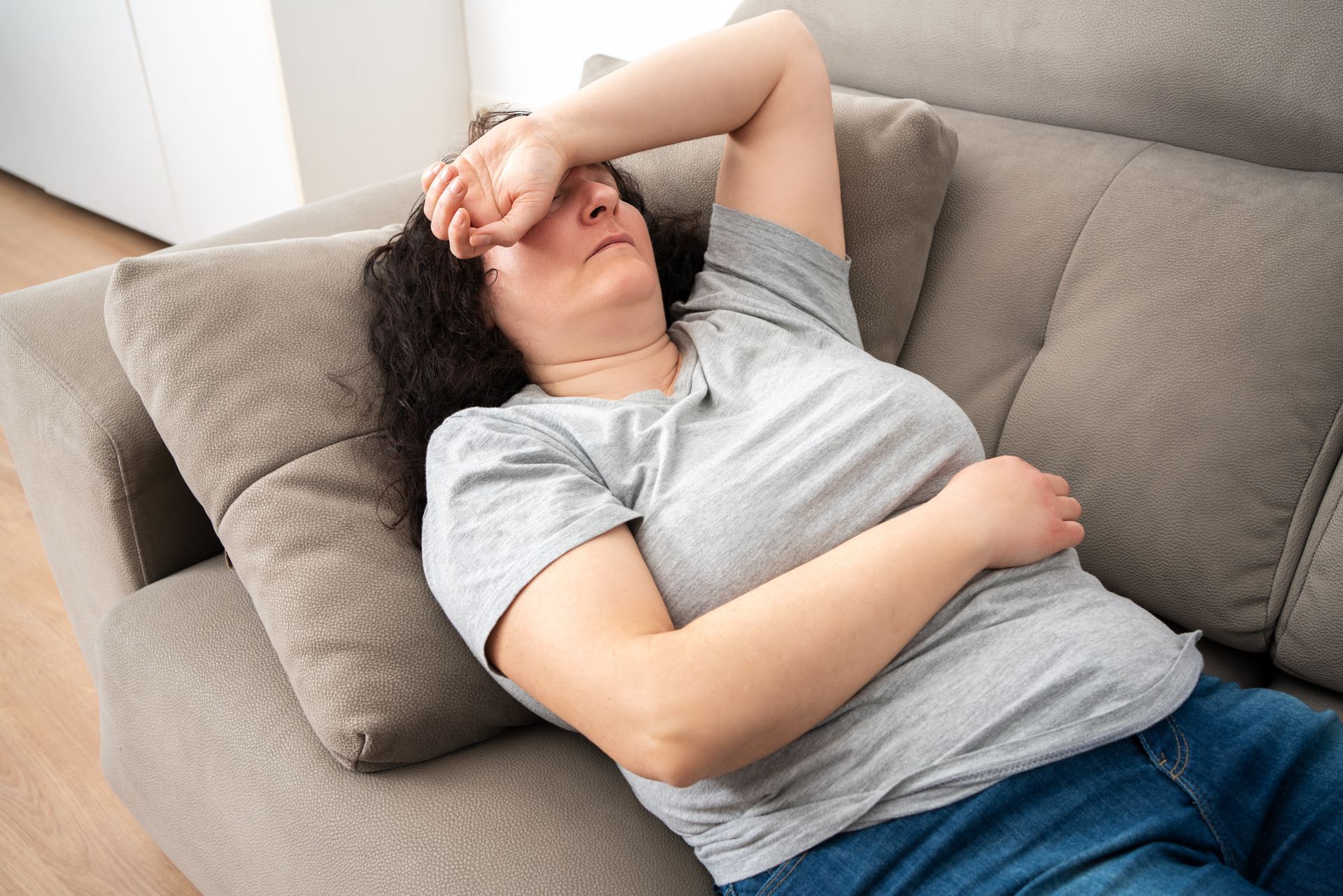Can Low Testosterone Cause Fatigue?

Most men experience bouts of fatigue every so often, especially as they get older. A stressful week at work or a few sleepless nights can cause someone to feel listless for a few days. When those few days extend to several weeks, however, fatigue may be due to low testosterone levels. We offer testosterone replacement therapy at our Baton Rouge and New Orleans-area clinics as part of a comprehensive solution.
How Does Low Testosterone Cause Fatigue?
Testosterone is the primary male sex hormone, and it’s responsible for a man’s sex drive, physical performance, muscle mass, and energy level. After about age 30, testosterone levels begin a slow, steady decline that continues for the remainder of a man’s life. This is a normal part of the aging process , and most men maintain normal testosterone levels for their age.
But when those levels reach abnormally low levels—often called low T—a man often experiences a range of symptoms , including fatigue and insomnia. Many of the symptoms are interrelated: Insomnia can cause fatigue, which in turn may result in depression, a loss of interest in sex, and weight gain from being less active.
Is Testosterone Replacement Therapy Right for You?
Before we recommend hormone replacement therapy at our Baton Rouge clinics, it’s important that a patient concerned about chronic fatigue is examined by a physician. The physician can check for underlying medical conditions that may be the root cause of fatigue. Being constantly tired is associated with several conditions, including:
- Sleep apnea
- A body mass index (BMI) over 30
- Hypothyroidism (not enough thyroid hormones)
- Depression (unrelated to hormonal imbalance)
If your physician doesn’t diagnose any other condition for feelings of constant fatigue, Rejuvime Medical can perform comprehensive blood tests to determine if low testosterone levels are the culprit.
Taking a Well-Rounded Approach
Medically monitored testosterone replacement therapy that’s tailored specifically for you can be an effective treatment for low T, but it should be combined with other measures. Lifestyle changes, for example, can boost energy and help you get more sleep.
What kinds of changes?
Eating habits : Diet is a word that’s often associated with fads and changes designed to simply reduce calorie intake. Healthy eating habits, on the other hand, mean consuming plenty of fruits and vegetables, limiting saturated fats, and drinking alcohol in moderation.
Exercise : Fatigue often leads to exercising less, which causes people to feel more listless. It’s a dreaded cycle that many men fall into as they age. Even engaging in moderate exercise several days a week can boost energy, help you get a better night’s sleep, and improve your mood.
Taking care of your mental health : The changes that accompany dropping testosterone levels can deal a blow to a man’s self-esteem and result in feeling depressed. Discussing your feelings with a mental health counselor can help you understand these feelings and, combined with testosterone replacement therapy and the other changes mentioned in this blog post, have you feeling more overall zest for life.
If you’re feeling fatigued and experiencing other symptoms of low testosterone levels, discussing your concerns with a hormone specialist in Baton Rouge or Metairie, Louisiana, can help determine if you can benefit from testosterone replacement therapy. Contact us using the online form or call us at one of our locations: (225) 960-1580 (Baton Rouge) or (504) 252-9579 (Metairie).
The post Can Low Testosterone Cause Fatigue? first appeared on Rejuvime Medical.
Get in Touch
Questions? Contact us today by phone or book an appointment online.
Questions? Call our office:
(225) 228-3128





